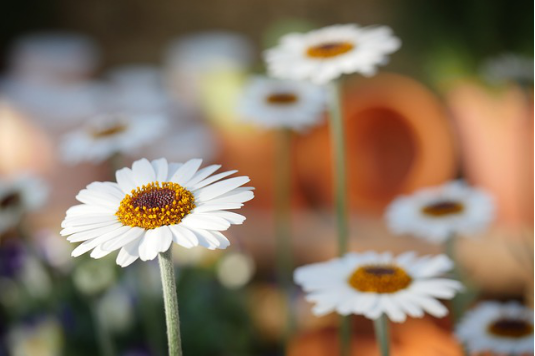
The start of Autumn is the perfect time you should begin thinking of freezes and frosts and their effects on the plants you’re trying to grow. Many garden plants, fortunately, can withstand winter without problems—abrupt and early freezing might just cause tissue damage to the point that the plants will prematurely drop leaves, but they will eventually rebound the following spring.
Bring Indoors All Tender Plants
Depending on the region your residence is located, certain plants might behave as either perennials or annuals that simply are unable to handle even the lightest of frost. Many gardeners never bother to try extending the lives of plants that generally aren’t meant to live longer than one year and let these die back once a freeze does hit. But if you are raising potted perennials and annuals and would like to save these, move all pots into your house or garage once frost is coming and get these out once the weather becomes a bit warm, at least for one to two weeks. The process lets plants better acclimate to drastic changes to growing conditions.
Bring in Tropicals
Tropical plants should be placed indoors before if temperatures drop to 7 degrees Celsius or below. But before you do so, spray all plants which look infested with pests like mealybugs, aphids, and spider mites. The best spray to use is a solution of neem oil.
Once you have brought the plants in, don’t apply fertilizer and avoid watering the plant with rainwater taken from a small rainwater tank until spring comes.
Protect Your Evergreens
Potted evergreens are most vulnerable to freezing. If their roots do freeze, it’s likely they won’t live through the winter. Evergreens in big pots might be fine in a mild winter, but all evergreens set in small pots need to be protected. Set these against a wall, making sure to cover with shredded leaves or mulch all pots. Keep watered all throughout winter, and never allow evergreen root balls to completely dry out, even if this means dragging out the hose mid-winter and soaking them.
Raise Hardy Herbs
Many herbs are considered tender but capable of surviving at around 20 degrees. There are, however, a number of herbs which can overwinter in outdoor pots. Examples of the latter are thyme and rosemary.
You Might Notice New Growths on Certain Plants
Some plants respond to cool temperatures by putting on new growths. But these new growths aren’t that hard, and unless they had the chance to harden prior to a freeze, they might die back.
Resist Cutting Ornamental Grasses Back
If there are ornamental grasses in your garden, resist the urge to cut back foliage back until the later days of winter or the early parts of spring. This is because all the top growth can help in the insulation of the root ball. This is most especially true if grass in the area is just marginally hardy.
Clean and Store All Pots Somewhere Protected
It’s worth remembering that plants are not the only things affected by freezes. These can also do havoc on other garden features as well. Even good pots crack if there’s soil left in them throughout the winter, and so remember to take the soil out. If you have some extra time in your hands, scrub every pot with a solution composed of nine parts water to one part bleach.



Leave A Comment